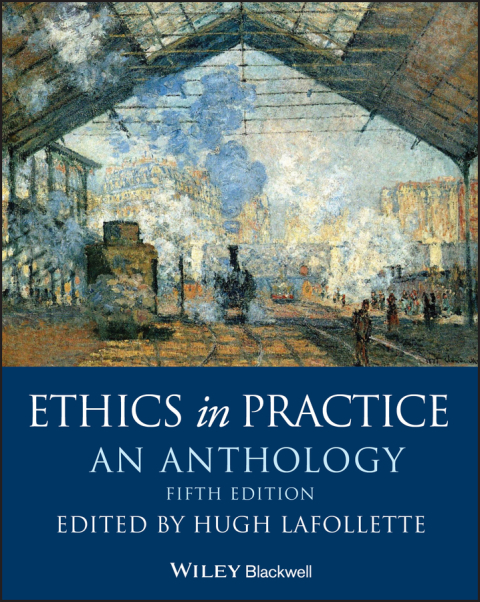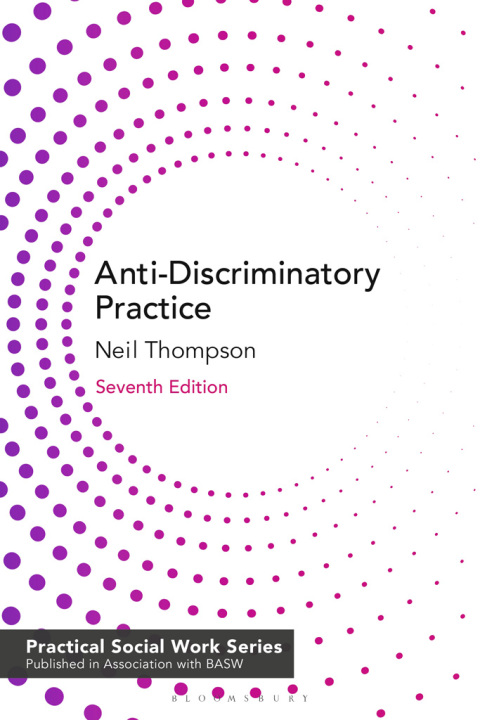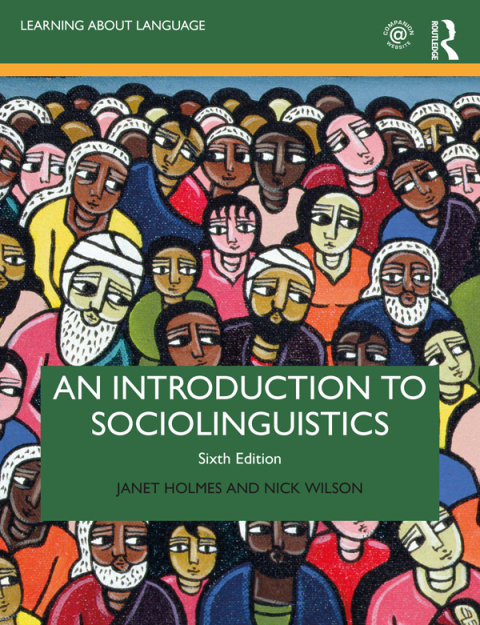Description
Efnisyfirlit
- Cover
- Preface for Instructors
- Acknowledgments
- Source Acknowledgments
- General Introduction
- References
- Theorizing about Ethics
- The Need for Theory
- Is it Just a Matter of Opinion?
- The Role of Theory
- Main Types of Theory
- Conclusion
- References
- Reading Philosophy
- Philosophical Language
- The Centrality of Argument
- Looking at Others’ Views
- The Rational Consequences of What We Say
- A Final Word
- References
- Writing a Philosophy Paper
- The Most Common Types
- Writing
- Revise, Revise, Revise
- Learning from Others
- References
- The Basics of Argumentation
- Reference
- Part I: Theory
- Ethical Theory
- Reference
- 1 Consequentialism
- The Good is Agent‐Neutral and Independent of the Right
- Probable Consequences, Not Actual Consequences, Are What Count
- Utilitarianism
- Consequentialism in Practice
- Objections to Consequentialism
- Conclusion
- References
- 2 Deontology
- Introduction
- Common‐Sense Morality
- Varieties of Deontology
- Defending Deontology
- References
- Further Reading
- 3 Rights
- Features of Rights
- Kinds of Rights
- What are Rights?
- Rights in Practice
- What Can Have Rights?
- Rights, Consequentialism, Virtue Ethics, and Deontology
- Acknowledgment
- References
- 4 Virtue Theory
- Introduction
- Virtue (Arete) as Excellence
- Phronesis (Wisdom)
- Contemporary Virtue Ethics
- Eudaimonia
- Part II: Life, Death, and Moral Status
- Euthanasia
- Further Reading
- 5 Justifying Physician‐Assisted Deaths
- The Troubled Distinction between Killing and Letting‐Die
- When Does a Role in Bringing about Death Constitute Killing?
- Valid Refusal as the Basis of Letting‐Die
- Valid Refusals and Valid Requests
- The Wrongness in Causing or Assisting in Death
- The Key Argument in Defense of Euthanasia and Assisted Suicide
- Justifying Policies and Justifying Acts
- 6 Against the Right to Die
- I
- II
- IV
- V
- VI
- VII
- VIII
- IX
- X
- XI
- XII
- Acknowledgments
- References
- 7 Physician‐Assisted Deaths: Policy Choices
- The Status of the Debate
- Terminological Preliminaries
- Why Assist Any Patients to Die?
- Are There Morally Relevant Distinctions between Withholding Treatment and EAS?
- The Case for Legal Euthanasia and Assisted Suicide
- Conclusion
- 8 Dying at the Right Time: Reflections on (Un)assisted Suicide
- The Key Questions
- Conclusion
- Acknowledgments
- References
- 9 ‘For Now Have I My Death’: The ‘Duty to Die’ Versus the Duty to Help the Ill Stay Alive
- I
- II
- III
- Abortion
- Further Reading
- 10 A Defense of Abortion
- 11 On the Moral and Legal Status of Abortion
- I
- II
- Conclusion
- 12 An Argument that Abortion is Wrong
- Why the Debate over Abortion Seems Intractable
- The “Future Like Ours” Account of the Wrongness of Killing
- Arguments in Favor of the FLO Theory
- Replies to Objections
- Conclusion
- Acknowledgment
- References
- 13 The Moral Permissibility of Abortion
- Introduction
- The Moral Status of Embryos and Early Fetuses
- Abortion and Gestational Assistance
- Intimacy, Pregnancy, and Motherhood
- Norms of Responsible Creation
- Further Reading
- References
- 14 Virtue Theory and Abortion
- Virtue Theory
- Abortion
- Conclusion
- Animals
- Further Reading
- 15 All Animals are Equal
- 16 Moral Standing, the Value of Lives, and Speciesism
- I
- II
- III
- IV
- V
- VI
- VII
- VIII
- 17 The Case for Animal Rights
- 18 The Vegetarian Imperative
- Why Eating Meat is an Ethical Issue
- How to Look at Animals
- Why We Should Be Vegetarians
- Objections
- Vegetarianism or Veganism?
- Taking Responsibility
- What About Responsible Meat‐eating?
- Vegetarianism and Different Ethical Approaches
- Conclusion
- Acknowledgment
- Further Reading
- Biomedical Technologies
- Further Reading
- 19 Is Women’s Labor a Commodity?
- What Is a Commodity?
- The Case of Commercial Surrogacy
- Children as Commodities
- Women’s Labor as a Commodity
- Commercial Surrogacy, Freedom, and the Law
- 20 “Goodbye Dolly?” The Ethics of Human Cloning
- Cell Mass Division
- Individuals, Multiples, and Genetic Variation
- Nuclear Substitution: the Birth of Dolly
- Human Dignity
- Instrumentalization
- It is Better to Do Good
- Genetic Variability
- Genetic Identity
- A Right to Parents
- Two Parents Good, Three Parents Better
- What Good is Cloning?
- Dolly Collapses the Divide between Germ and Somatic Cells
- Immortality?
- Procreative Autonomy
- Acknowlegments
- 21 The Wisdom of Repugnance: Why We Should Ban the Cloning of Humans
- Taking Cloning Seriously, Then and Now
- The State of the Art
- The Wisdom of Repugnance
- The Profundity of Sex
- The Perversities of Cloning
- Ban the Cloning of Humans
- 22 Cognitive Enhancement
- I Preliminary Issues
- II In‐Principle Objections
- Conclusion
- Acknowledgements
- References
- Environment
- Further Reading
- 23 The Value of Nature
- The Value of Naturalness
- Inherent Worth in Nature
- Conclusion
- References
- 24 A Place for Cost–Benefit Analysis
- I What is CBA, and What is it For?
- II Is CBA Anthropocentric?
- III Does CBA Presuppose Utilitarian Moral Theory?
- IV Does CBA Tell Us to Sacrifice the One for the Sake of the Many?
- V Must CBA Treat All Values as Mere Commodities?
- VI Does CBA Work?
- VII Must CBA Measure Valuations in Terms of Willingness to Pay?
- VIII Must Future Generations Be Discounted?
- Conclusions
- References
- 25 Ideals of Human Excellence and Preserving Natural Environments
- I
- II
- III
- IV
- V
- 26 A Perfect Moral Storm: Climate Change, Intergenerational Ethics, and the Problem of Moral Corruption
- I The Global Storm
- II The Intergenerational Storm
- III The Theoretical Storm
- IV Moral Corruption
- Acknowledgments
- References
- Part III: Liberty and Equality
- Paternalism and Risk
- Harm to Self
- Risk to Others
- Further Reading
- 27 Freedom of Action
- 28 Against the Legalization of Drugs
- Back to the Future
- Have We Lost?
- The Benefits of Illegality
- The Alcohol Problem
- If I Am Wrong…
- 29 Why We Should Decriminalize Drug Use
- I The Meaning of Decriminalization
- II The Best Reason to Decriminalize Drug Use
- III Criminalization
- IV Predictions: A Bad Reason to Criminalize
- 30 The Liberal Basis of the Right to Bear Arms
- I Some Liberal Constraints
- II Firearms and Autonomy
- III Risk
- IV Firearms and Equality
- V Conclusion
- VI Epilogue: Liberal Neutrality
- 31 Gun Control
- Justifying Private Ownership of Guns
- Harm, Danger, and Risk
- What We Need to Know
- Assessing the Evidence
- A Third Way
- Acknowledgment
- References
- Free Speech
- Further Reading
- 32 Freedom of Thought and Discussion
- 33 “The Price We Pay?” Pornography and Harm
- What Is Pornography?
- Pornography and Harm
- A Moral Right to Pornography?
- Acknowledgments
- References
- 34 The Right to Get Turned On: Pornography, Autonomy, Equality
- I Introduction
- II What Is Pornography?
- III Sexual Autonomy
- IV Sexual Violence
- V Sexual Inequality
- VI Making Pornography
- VII Sexual Identity
- VIII Conclusion
- References
- 35 Sticks and Stones
- I Why Protect Freedom of Speech?
- II Free Speech and the Constitution
- III Harm and Offense
- IV Group Harm
- V Cumulative vs. Individual Harm
- VI Cumulative Harm to Self‐esteem
- VII Discrimination and Violence as Indirect Harms
- VIII Offensive Expression and Epithets
- Acknowledgments
- References
- 36 Speech Codes and Expressive Harm
- I Introduction
- II Causal Harm
- III Expressive Harm: Public Actors
- IV Expressive Harm: Private Actors
- V Moral Contempt
- VI Official Condemnation
- VII Speech Codes
- References
- Discrimination, Racism, and Sexism
- Further Reading
- 37 Racism as an Ethical Issue
- The Roots of Racism in the Concept of Race
- In What Does Ethical Wrong of Racism Consist?
- The “End of Racism” or Unrecognized Institutional Racism?
- Does Intent Matter?
- Can We Move “Beyond Race” and if so How?
- References
- 38 Servility and Self‐Respect
- I
- II
- III
- IV
- 39 Implicit Bias
- Introduction
- Awareness of Implicit Bias and Discrimination: Empirical Evidence
- Responsibility in Degrees
- Awareness, Responsibility, and Implicit Bias
- Conclusion
- References
- 40 Affirmative Action as Equalizing Opportunity: Challenging the Myth of “Preferential Treatment”
- Introduction
- Clarifying the Scope of Affirmative Action Policies
- Re‐envisioning the Rationale for Affirmative Action: From “Preferential Treatment” to “Equal Opportunity”
- The Limitations of the Compensation Rationale for Affirmative Action
- The Limitations of the Social Utility Rationales for Affirmative Action
- Challenging the “Stigma” of Affirmative Action
- Conclusion
- References
- 41 Sexual Harassment: Formal Complaints Are Not Enough
- 1 Problems with Excessive Focus on Formal Measures
- 2 How to Respond: Asking New Questions
- 3 Cases
- 4 Objections
- References
- 42 Men in Groups: Collective Responsibility for Rape
- I The Rapist as Loner or Demon
- II The Rapist as Victim of Biology
- III The Rapist as Victim of Society
- IV The Rapist as Group Member
- V Conclusions
- References
- 43 Ideals of Respect: Identity, Dignity and Disability
- Aims and Methods
- Example: Kristen’s Night Out
- Kinds of Respect
- Objects of Respect: Dignity, Excellence and Status
- Objects of Respect: Identity
- Respecting the Identity of Persons
- Identity Respect as a Moral Ideal
- References
- Conscience, State, and Religion Introduction
- References and Further Reading
- 44 Resolving Conflicts Between Religious Liberty and Other Values
- Introduction: The Affordable Care Act Contraceptive Mandate
- The Contraceptive Mandate and the Free Exercise of Religion
- Non‐Religious Moral Objections to the Contraceptive Mandate
- Conclusion
- 45 Religious Conviction, Parental Authority, and Children’s Interests
- Legal History in the United States
- Cases
- Harms Associated with State Intervention
- Harms Associated with State Inaction
- Warranting Intervention
- Mitigating Harms
- Conclusion
- References
- 46 Gay Rights and Religious Accommodations
- I Economic Harm
- II Dignitary Harm
- III Stigmatizing Prejudice
- 47 Conscientious Objection in Health Care
- Introduction
- What is Conscientious Objection?
- Assessing Approaches to Conscientious Objection in Health Care
- Conscientious Objection vs. Obstruction
- Conclusion
- 48 My Conscience May Be My Guide, But You May Not Need to Honor It
- Clarifying and Focusing the Options
- Two Questions
- When Should Someone Act on His or Her Conscience?
- What Should Other’s Reactions to these Claimants Be?
- Policy Choices
- Accommodation without Rights
- Conclusion
- Acknowledgments
- Legal Cases
- References
- Part IV: Justice
- Punishment
- Further Reading
- 49 Punishment and Desert
- Treating People as They Deserve
- Why People Should Be Treated as They Deserve
- Punishment
- 50 Does Punishment Work?
- Introduction
- The Great Punishment Experiment
- Justifications for Punishment
- Deterrence
- Incapacitation
- Just Deserts and Retribution
- Rehabilitation
- What Does it Take for Punishment to be Effective?
- Life‐Course Development of Offending: Why Punishment Most Often Fails
- Putting it All Together: Empirical Evidence for the Justifications of Punishment
- References
- 51 In Defense of the Death Penalty
- The Retributivist Argument
- The Utilitarian Argument
- Objections to Capital Punishment
- Conclusion
- 52 Against the Death Penalty
- I
- II
- III
- IV
- 53 Just Deserts in Unjust Societies: A Case‐Specific Approach
- Socioeconomic Deprivation, Crime, and Injustice
- Socioeconomic Injustice and Blameworthiness
- A Case‐Specific Approach to Assessing Blameworthiness
- Conclusion
- 54 To Protect and Serve: What is Wrong with the Policing of Minorities in the US?
- I Introduction
- II The Background
- III Steps Forward
- IV Conclusion
- Acknowledgments
- Economic Justice
- Further Reading
- 55 A Theory of Justice
- The Main Idea of the Theory of Justice
- The Original Position and Justification
- Two Principles of Justice
- The Reasoning Leading to the Two Principles of Justice
- 56 The Entitlement Theory of Justice
- Historical Principles and End‐Result Principles
- Patterning
- How Liberty Upsets Patterns
- Redistribution and Property Rights
- 57 The Ethical Implications of Benefiting from Injustice
- Introduction
- Persuasion
- Identification
- Specification
- References
- 58 A Bleeding Heart Libertarian View of Inequality
- I Bleeding Heart Libertarianism
- II Markets Bring Inequality But…
- III The Inequality in Our Market System and the Real Problems
- IV Global and Domestic Inequality
- V Government Intervention is the Cause, not the Answer
- Global Justice
- References and Further Reading
- 59 Refugees and the Right to Control Immigration
- The Right to Exclude
- Refugees
- 60 The Case for Open Immigration
- The Problem of Immigration in the Modern World
- In Defense of Free Immigration
- Economic Arguments Against Open Borders
- Nationality and Immigration
- Immigration and Security
- Concluding Reflections
- References
- 61 Famine, Affluence, and Morality
- Postscript
- 62 Famine Relief and the Ideal Moral Code
- Introduction
- A Duty to Prevent Evil?
- Entitlements
- The Concept of a Social Moral Code
- The Ideal Social Moral Code
- Are Rights Part of the Ideal Code?
- Is Just Desert Part of the Ideal Moral Code?
- Conclusion
- 63 Eradicating Systemic Poverty: Brief for a Global Resources Dividend
- I Introduction: Radical Inequality and Our Responsibility
- II Three Grounds of Injustice
- III A Moderate Proposal
- IV The Moral Argument for the Proposed Reform
- V Is the Reform Proposal Realistic?
- Conclusion
- Bibliography
- War and Torture
- Just War
- Torture
- Further Reading
- 64 War and Moral Consistency
- The Moral Challenge of War
- The Puzzle of National Defence
- The Morality of Participation in War
- Non‐Combatant Immunity in War
- Conclusion
- 65 Pacifism: Reclaiming the Moral Presumption
- Pacifism: Refusing to Participate in War
- A Pacifist City of Refuge
- The Pacifist Way of Life: More than Rejecting War and Intentional Killing
- Just War and Right Killing: The Open Question
- The Pacifist Moral Vision: Two Constitutive Elements
- Two Types of Pacifism
- Human Life: The Ultimate Basis of Moral Value
- A Response to the Chief Criticism of Pacifism
- Conclusion
- 66 The Justifiability of Humanitarian Intervention
- Humanitarian Intervention in the Perspective of the Charter
- Intervention and the Just War
- Further Questions
- 67 Terrorism and Torture
- 1 Introduction
- 2 The Conflict between Utilitarian and Deontological Approaches
- 3 What about Rights?
- 4 Under What Conditions Is Torture Morally Permissible?
- 5 What Forms of Torture Are Permissible?
- 6 Final Remarks
- 68 Unthinking the Ticking Time Bomb
- I
- II
- III
- IV
- V
- VII
- End User License Agreement






Reviews
There are no reviews yet.